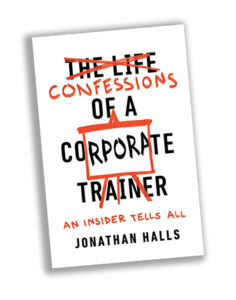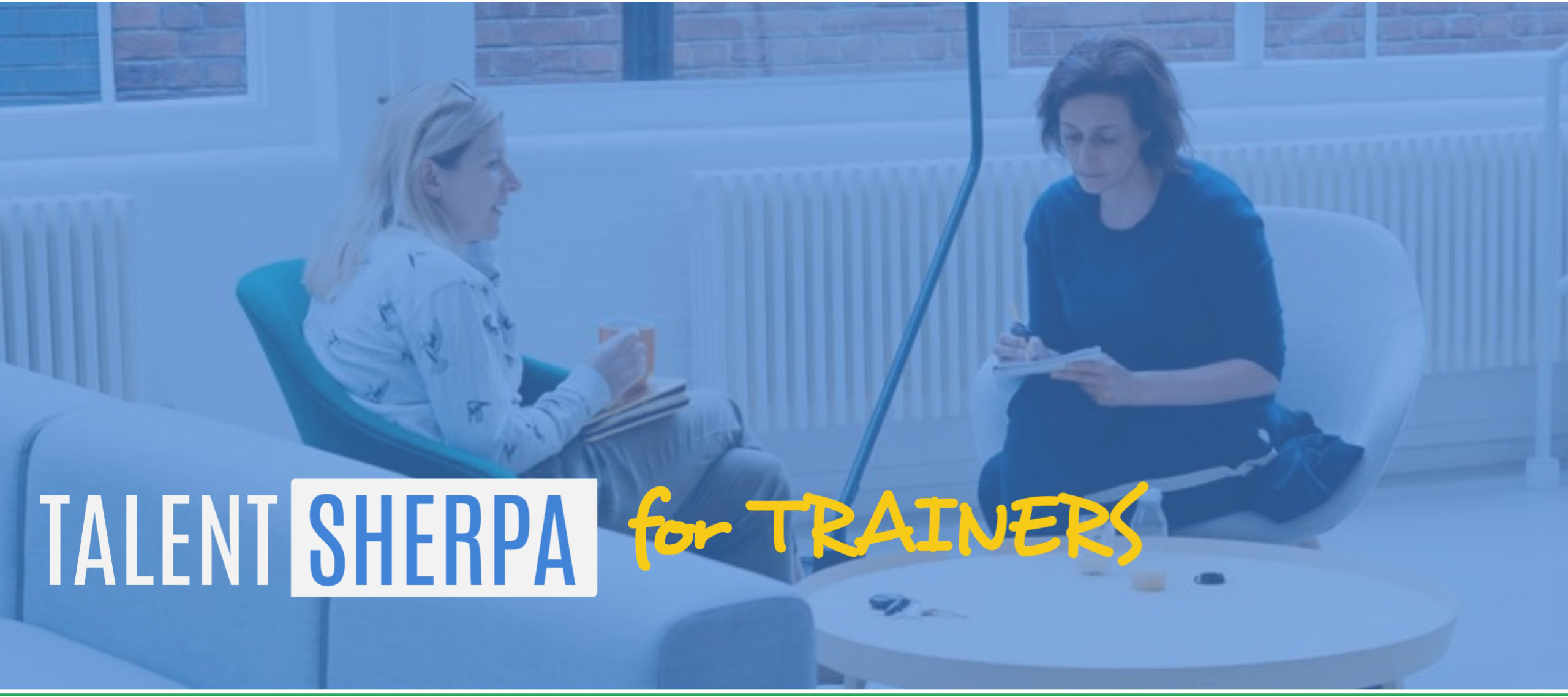Talent Sherpa Program for Trainers
Trainer Mojo’s Talent Sherpa Program is a 4-day train-the-trainer program based on the latest studies in talent development, cognitive psychology, neuroscience and organizational theory. It equips learning professionals with evidence based skills to drive organizational performance.
Traditional train-the-trainer programs often emphasize platform skills and classroom management. And while they’ll claim to be about learner centricity, they’re more often about stagecraft and ‘controlling the room’.

In Confessions of a Corporate Trainer, Jonathan pokes fun at the industry, challenges fads and myths about learning, and suggests we need to get real if we as a profession are to deliver value. The book embodies the sherpa mindset while also celebrating the role of today’s workplace trainers.
The Talent Sherpa Program does not see training quite the same way. Rather, it sees the trainer’s role as an intentional guide who helps learners do the intellectual and physiological work of building their learning through carefully constructed experiences both in and out of the classroom. They balance the tension between crafting learning experiences that achieve organizational needs while meeting the pedagogical needs of learners.
The 4 Day Talent Sherpa Workshop helps learning professionals link the science of learning to the business world, providing a rigorous framework to evaluate performance. It equips them with a deep knowledge of learning science, organizational dynamics and professional practice.
Learning Objectives (Learning Science)
- Apply learning science, based on the latest research into cognitive neuroscience, into workplace learning to help organizations improve performance.
- Influence learning conditions to make workplace learning easier and more efficient, both within and outside the traditional classroom.
- Describe the direct link between organizational, project and personal objectives and learning strategy.
- Discuss key adult learning theories and how they relate to organizational performance

Learning Objectives (Designing Learning Experiences)
- Designing Transformative Learning Experiences
- Conduct basic training needs analysis for individual learners and managers using questions and surveys.
- Write clear learning objectives for learning design following the Mager standards.
- Investigate learner or organizational preferences for learning. (Note this is not learning styles – it’s about when learning is needed, how, where and other logistics.)
- Select the most appropriate learning modalities to deliver learning based on topic.
- Design face-to-face learning experiences focused on learning objectives that draw on learning science.
Learning Objectives (Facilitating Transformative Experiences)
- Facilitating Transformative Learning Experiences
- Create an optimal atmosphere for learning in face-to-face situations, drawing on the Rock SCARF model to engage executive function.
- Create an optimal atmosphere for learning in virtual learning situations, drawing on the Rock SCARF model to engage executive function.
- Discuss ways to create optimal learning atmosphere in contexts outside the classroom.
- Communicate verbally with clarity, drawing on vocal dynamics theory.
- Deploy questioning techniques to engage learners in the process of memory retrieval and mental model formation.
- Engage personal self-regulation to ensure behaviors or biases don’t adversely affect learning.

